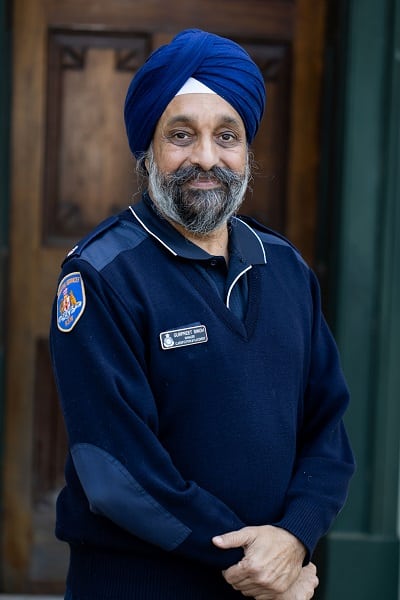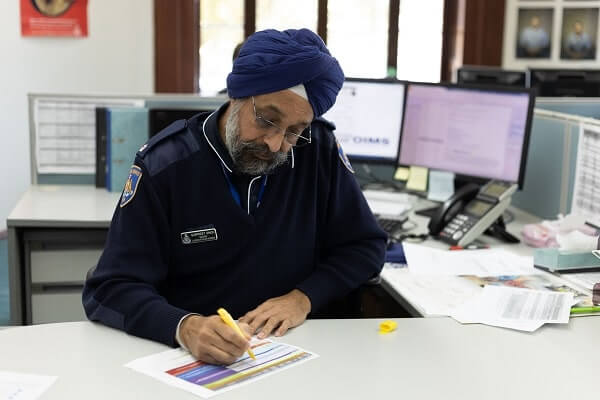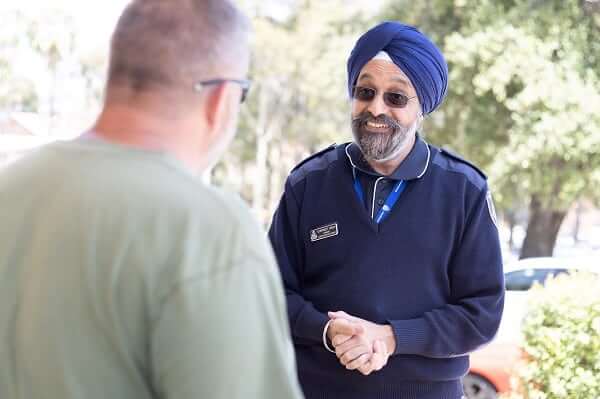Sydney’s GURPREET SINGH tells RAJNI ANAND LUTHRA about his work with Corrective Services NSW.
My job title
Deputy Superintendent Classifications and Placement, at the Silverwater Correctional Complex
I have been in this field for
27 years
What my job entails
My job involves deciding where inmates should be placed so that they have the best chance at turning their lives around.
When an inmate first comes in, we do a detailed risk assessment before building a case plan for the length of their stay. This involves looking at their age, whether they are a first-time offender, health issues including mental health, educational and employment levels, identifying whether there are alcohol/drug/violence/gang-related issues, etc. Based on this we chart out a comprehensive plan for their rehabilitation. Depending on the program we recommend, we decide where they should be placed, ie, which facility will provide them with the program they need for rehabilitation.
It is a long journey for inmates – so our assessment and placement can be crucial. In some cases their own safety can be affected. But more importantly, if we place an inmate at a location without a suitable program for them, they’re just going to sit around and do nothing, which might encourage them to offend again.
The positive aspects of my work
I’m directly involved in helping someone turn their life around. The decisions that my team and I take, have a significant bearing on the future of the offender. This could be in their health or mental health, behaviour issues, as well as work. Importantly, we see that they get appropriate skill sets, training them in meaningful work. Long-term inmates are encouraged towards education via open university if they are keen to do so.
Most often, we’ve observed that they take really well to our intervention programs. Of course, there are those who don’t – you can take a horse to water, but you can’t make it drink.
Overall, my work is fulfilling and rewarding. There have been occasions when I’m out and about after hours, and someone walks up to me and says, Hello Mr Singh how are you. It’ll be a former inmate who still remembers.
READ ALSO: #MyWork: Group Fitness Instructor

The challenges
Yes there are challenges, like in every job. In the rare case where we are not able to place an inmate in the best possible program for them due to whatever reason, it can be frustrating. It is not deliberate, as might be believed; we’d like you to know that plenty of work takes place in the background before we decide to go down to the next best placement.
It can also be a challenge sometimes to establish rapport and trust, but I’ve learnt that communication is the key.
I’m often asked about safety of staff in this work environment. Yes, staff have to deal with issues like self-harm, skirmishes and riots, but we are trained to deal with these situations. Confronted with these conditions, we act according to set professional guidelines and quickly diffuse.
How COVID-19 has changed my work practice
I’m working from home a lot. When I do visit the sites, it’s always after testing, because we are concerned about the health and safety of staff as well as inmates. Like in other industries we’re also facing staff shortages, and ongoing uncertainty. We do however have good support from Command Post, who manage staff and look after testing.
Regarding the inmates, monitoring social distancing and mask-wearing has become an added responsibility. Visits have been an issue obviously. But technology has helped – we’ve been able to organise video visits.
READ ALSO: #MyWork: Mental Health Social Worker

How my job has changed my life
I’ve gained a lot of life experience (laughs). I was very naïve when I started! But seriously, I’ve developed great skills in dealing with people. Effective communication is vital. I’ve learned how to be firm but fair – it’s the most appropriate way to treat the inmates with dignity, and to do the right thing by them.
I’m also pleased at how I’ve learned to communicate with my staff.
Over and above these changes, I’ve begun to feel that my work is sewa, the act of selfless service. Sewa is at the core of my Sikhism. It’s something I’ve learnt from my family and have taught it on to my own children. We all do sewa in the gurudwara frequently, but I think sewa must be reflected in everyday life. I see my job as sewa, directly helping better people’s lives. Seeing my job as sewa also helps me to do it better.
Advice for people who are looking to get into this profession
Yes, many new migrants from India have shown an interest. It is challenging, but you’re trained for it. There’s been an increase in financial stability, and there are many opportunities for growth. You can diversify according to your area of interest – industry, psychology, civilian or custodial roles.




